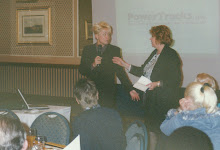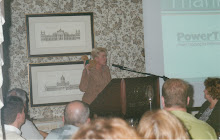Only a mere one-hundredth of a second produced Michael Phelps’ win over Serbia’s Milorad Cavic at the 2008 Olympics in Beijing. Phelps came in at 50.58 seconds and Cavic at 50.59 seconds. Phelps was later quoted as saying he started to hurt during the final ten meters but pushed himself just that tiniest bit more to victory.
This got me thinking about the close wins that happen when people compete for a job, a promotion, or anything else where a decision must be made as to who will be the winner based upon a personal advantage. For job candidates, this is something everyone fears – that an opponent has one teeny, tiny advantage that allows them to be the first to “touch the wall” and you only a breath away. The question then becomes:
What one-hundredth second advantage do you have?
I recall when I competed for a job against 57 candidates; all of them from inside the organization. Before my interview, their one-hundredth second advantage was that they were already “in”. However, in my pre-interview research, I learned the company had a new CEO who believed they were under-utilizing their resources to reach out to more customers. Realizing that if those current candidates knew how to maximize their resources, they already would have, this knowledge gave me the one-hundredth second advantage when providing examples of how I turned minimal resources into amazing feats of sales success. Game over for the 57.
In the case of interviewing for a new job, it is likely you won’t know, going in, what your competition has to offer or the company’s pain so you won’t know if you have a miles-long or one-hundredth of a second advantage. Pre-interview research can help in some instances but, failing that, ask the interviewer. Consider that Michael Phelps knows his competition for each race. He has the ability to study his competition and prepare accordingly. He knows his competitors’ strengths and weaknesses, the lay of the land (pool), and, as a side note, takes care with what he wears into the pool.
You can do the same thing. Ask the interviewer how many people are competing for the job. Of those competitors, what are the things they like best and the things they like least about that person or persons? In addition to learning how you need to position yourself to take that one-hundredth second advantage, you will also learn what the company values in its employees. If, for example, the interviewer tells you that your competition will bring their former employer’s customer list to the new job and you find this to be unethical, you may want to save your time and energy for a race that really matters to you.
Executive Onboarding Note: The Importance Of The Confidence To Be Open To
Help
-
While executive onboarding, get help. If it’s offered, take it. If it’s not
offered, find it.
The post Executive Onboarding Note: The Importance Of The C...
7 years ago



